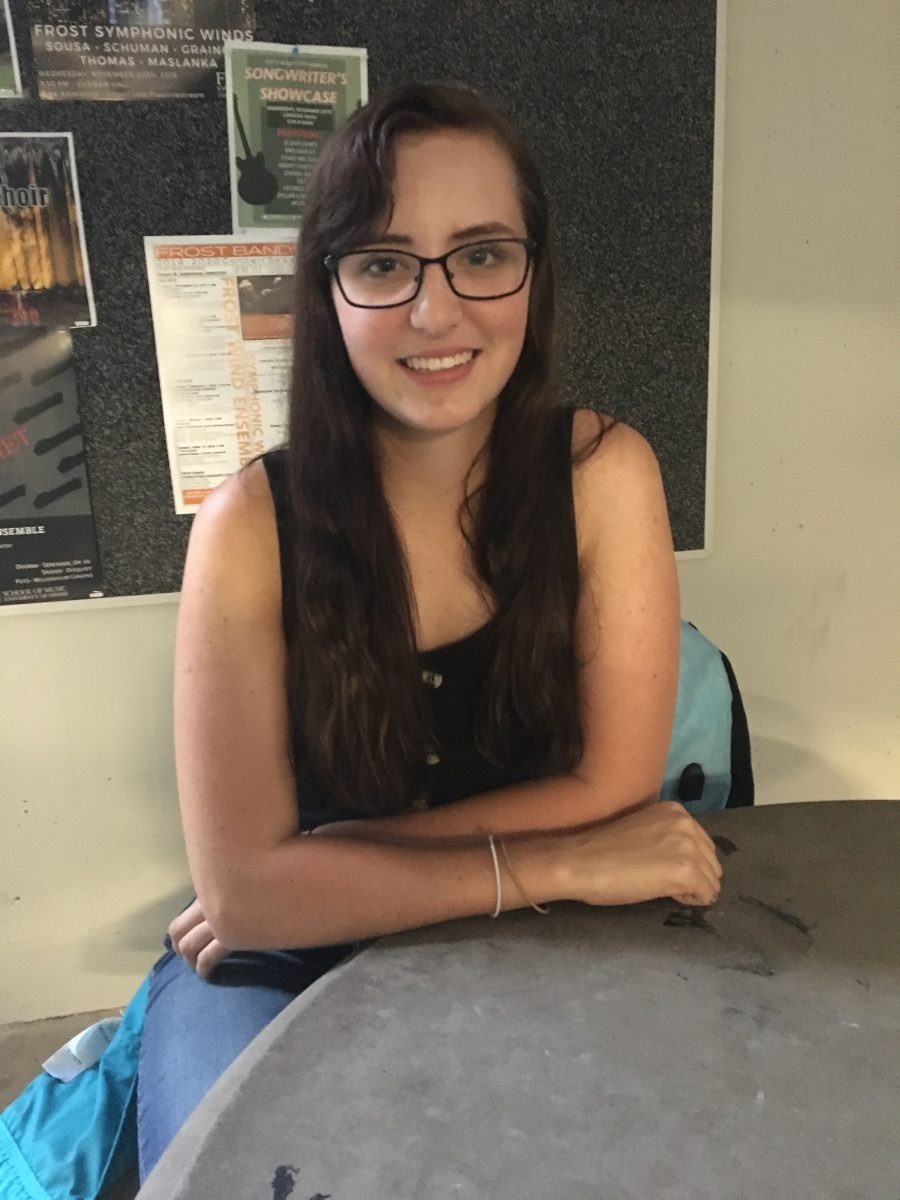
In every artist’s journey, teachers in some form or another play an indispensable role. Especially at early ages, they can be the deciding factor in whether or not a child decides to make the arts a lifelong passion. In conversation, senior music education major at the Frost School of Music Julia Gorordo explains how she is more than prepared to answer the call and support children’s’ creative development.
“I think a music teacher is able to reach their students in a way a math or science teacher can’t,” she states, “because it’s not fully about the curriculum on paper, it’s also putting your own emotions into it and using your past, your history, your feelings.”
Gorordo credits several teachers throughout her own journey from elementary school all the way through college as one of the major inspirations for her career path. But, in becoming an educator herself, lessons also learned from the bad leaders in her life have made Gorordo more aware of her own responsibility.
“I’ve definitely had a few really bad teachers here and there that have made me sit and go, ‘I don’t wanna be like this teacher, I don’t ever want to talk to my students this way’,” she admits. “But I’ve also had a lot of really good teachers. Teachers who’ve stuck their necks out for me and who’ve been there for me.”
While not all of her experiences on the path to certification have been stellar, Gorordo and other music education majors at Frost continue to play a major role in outreach. Every year, the students coordinate bake sales, a benefit concert, and other events to raise money for a grant which goes directly to a local school’s music program. Simply put, “whatever we can do to benefit music education we will do.”
In addition to learning from the craft of those who came before her, Gorordo has also amassed a wealth of hands-on experience in part through summer camp work at her home in Seattle. She works primarily in both music and theater with elementary school children, and her experience as a performer has helped her manage the precariousness of working with kids that young.
“I know I have a teaching personality,” she says. “It’s been referred to as the Disney Princess because I walk into a room of kids and I light up and I become Snow White. Rather than, ‘I have to get all this information across’, you can make it a performance.”
Yet, she finds some days are still unpredictable. One particularly “abrasive” student stands out in her mind. After repeated offenses from the child, Gorordo describes pulling her out of class one day to confront the problem head on.
“As I’m standing in the hallway, this 11 year old looks at me and says, ‘It’s because I’m different’, and I said ‘Why are you different?’ This kid at 11 years old thinks she’s gay and doesn’t know what to do with it.”
As delicate a situation as it was, it was yet another moment which affirmed Gorordo’s passion for teaching. Times like that have taught her to hold on to humility even as she gets closer and closer to becoming a full time teacher.
“That’s the part of being an arts teacher that I love, because she felt like she was in such a safe place that this thing that she has not told anyone, she could tell me.” Gorordo continues, “It humbles me, because that’s a lot to be going through at that age.”
In that way, Gorordo’s own experience proves what she has always known about being an arts teacher, that they can affect students in a truly unique way. She ends with contentment, “It keeps me human, to be a teacher.”






